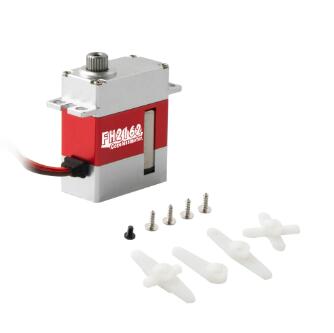Understanding the Advantages of Closed-Loop Control in Servo Systems
2024-08-07
Introduction
In the realm of automation and precision control, servo systems play a pivotal role in achieving accurate motion and positioning. One of the key factors that contribute to their effectiveness is closed-loop control. This blog explores the advantages of closed-loop control in servo systems, highlighting why it is preferred for applications requiring high accuracy, reliability, and responsiveness.
1. Precise Position and Velocity Control
Closed-loop control allows servo systems to maintain precise control over position and velocity. By continuously comparing the actual output (position or velocity) with the desired setpoint, any deviation can be quickly corrected through feedback adjustments. This results in accurate motion profiles and ensures that the system reaches the desired positions or speeds with minimal error.
2. Improved Accuracy and Repeatability
The feedback mechanism in closed-loop control reduces errors and disturbances that can affect performance in open-loop systems. Servo systems with closed-loop control can compensate for factors such as mechanical wear, variations in load, and external forces. This capability enhances accuracy and repeatability, making closed-loop servo systems ideal for applications where precise positioning is critical.
3. Enhanced Stability and Reduced Oscillations
Closed-loop control helps maintain system stability by adjusting control inputs based on real-time feedback. It reduces oscillations and overshoots that can occur in open-loop systems due to disturbances or sudden changes in load. This stability is essential for maintaining smooth operation and preventing mechanical stress or damage to the servo system and connected machinery.
4. Fast Response to Dynamic Changes
Servo systems with closed-loop control exhibit fast response times to changes in setpoints or external conditions. The feedback loop enables rapid adjustments to maintain desired performance parameters, such as acceleration, deceleration, and torque. This responsiveness is crucial in applications requiring dynamic motion control, such as robotics, CNC machining, and automated assembly lines.
5. Adaptability to Varied Operating Conditions
Closed-loop servo systems can adapt to varying operating conditions and environments more effectively than open-loop systems. They can compensate for changes in temperature, humidity, and load conditions without compromising performance. This adaptability enhances reliability and ensures consistent operation over a wide range of operational scenarios.
6. Fault Detection and Diagnostic Capabilities
The feedback provided by closed-loop control allows servo systems to detect faults or abnormalities in real time. This capability enables proactive maintenance and diagnostics, minimizing downtime and reducing the risk of unexpected failures. Operators can monitor system performance, identify potential issues early, and take corrective actions promptly.
Conclusion
Closed-loop control is a cornerstone of modern servo systems, offering significant advantages in terms of precision, reliability, responsiveness, and adaptability. Whether in manufacturing, robotics, aerospace, or other industries requiring precise motion control, closed-loop servo systems continue to set the standard for achieving optimal performance and efficiency.



